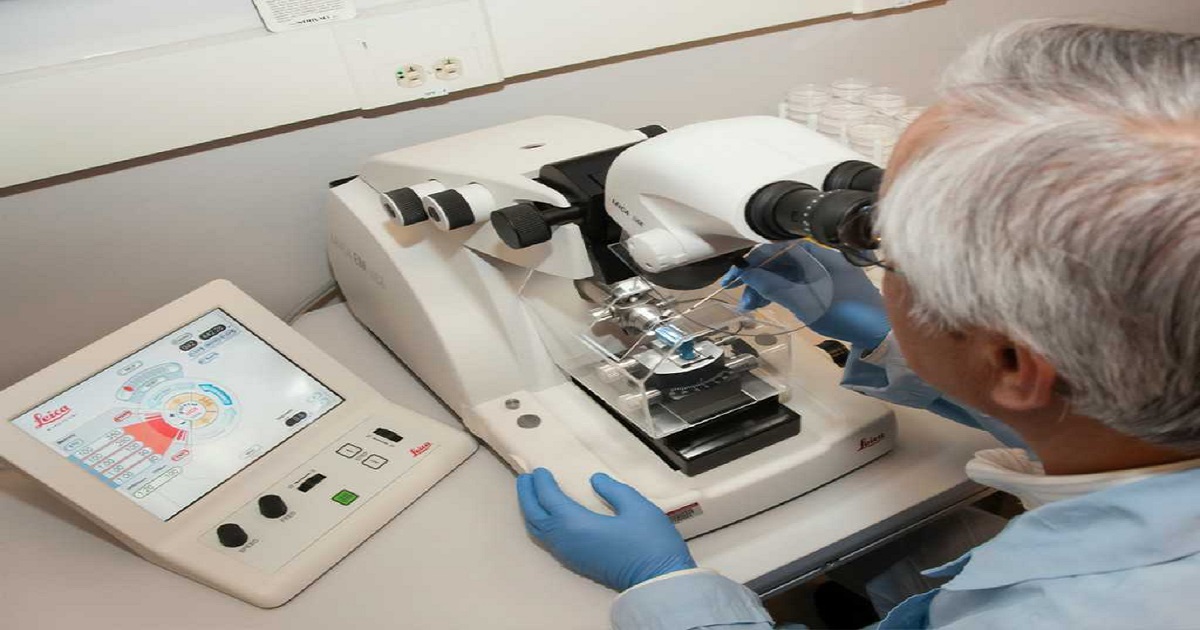
Health Technology, Digital Healthcare
Article | August 16, 2023
It’s no secret that the working world has changed these past few years, but employees have also undergone a lot of personal transformation due to these shifts. Struggles with health, home life, or personal issues can make it hard for them to work. Burnout is increasing worldwide, with 40% of desk-job workers feeling mentally distanced from work, depleted of energy, and increased negativity. Younger workers are already becoming drained by work life, which could spell trouble for future generations of employees.
Despite these challenges, the workplace is the best place to help staff improve their wellness, especially since they spend most of their time working or in the office. Wellness programs can be implemented to help employees feel rejuvenated and respected, which will boost their performance at work. Here are some examples of programs your workers might enjoy
Weight Management Programs
The idea of a weight management program at work may seem like something employees could be offended by, but it can help workers build healthy habits and assess their lifestyle to help them achieve better health. Employees can learn to manage their diet better, leading to weight loss and a lowered risk of certain health conditions.
These programs can also identify the need for medical weight loss strategies. For employees struggling with pre-obesity—a complex disease influenced by several factors often out of an individual’s control—personalized lifestyle changes and FDA-approved medications can be recommended. With chronic weight issues, doctors can prescribe medications that can help produce an average of 15% weight loss, especially when individual biology makes doing so harder. Employees can look for the help they need for wellness and weight loss, which can help them feel cared for by the company. When workers are at their peak physically, they can enjoy a healthier lifestyle and will be more efficient at work.
Quit Smoking Programs
Smoking is usually a means for employees to reduce stress, but it can greatly impact their personal and professional lives. Smokers tend to be more absent or disengaged at work than non-smokers. Presenteeism at work is also associated with heavy smoking. Employees coming to work despite health issues can lead to subpar performances. This can cost workplaces a lot of money in lost productivity, and workers will also suffer from health consequences.
Smoking cessation programs can help employees reduce their tobacco consumption and quit smoking for better health and productivity. These programs can include counseling, suggesting smoking cessation products or nicotine replacement therapy, or other initiatives tailored to individuals. Your staff may need more motivation when trying to quit, so having more support and a community to confide in can help.
Mental Health Programs
Mental health in the workplace was largely ignored for many years, as many saw it as a personal issue. However, work can contribute significantly to employees’ mental health problems or exacerbate mental illnesses like anxiety and depression. Improving these conditions is vital to improving many aspects of life for employees. Workers will better enjoy work and perform well when they know they’re being supported. Mental health is also paramount to sustainable development and plays a significant role in transforming the world as a whole. Treating and monitoring mental wellness should be prioritized at work and beyond.
Though companies may not have the means to properly diagnose or treat workers’ mental illnesses, mental health programs can help give employees and managers the education and resources to help improve mental wellness. Education and training on mental health can aid people in spotting issues and having them addressed or equip people with the ability to provide proper support or encouragement. These programs can also help the business take the initiative and offer other resources to improve mental health. That can be through mental health sick leaves, adding napping or gaming areas to the office, or offering mental health apps or counseling in benefits packages. When your staff is appreciated and taken care of, it’ll improve their overall well-being and life at work and home.
Read More

Health Technology, AI
Article | July 18, 2023
Artificial Intelligence is here to improve our lives, by not just making things more efficient, but also increasing our lifespan. Companies across industries are experiencing the advantages that come with AI innovation, especially the healthcare space. Throughout human history, we’ve been able to understand the parameters that determine health better, and we’ve developed accompanying technology. With vaccines in the late 1700s, anesthesia and medical imaging in the 1800s, to organ transplant and immunology in the 1900s, healthcare innovation has been on an upward slope.
Read More

Health Technology, Digital Healthcare
Article | August 21, 2023
Unlock EHR interoperability solutions with this article. Discover how healthcare overcomes EHR interoperability challenges to facilitate seamless information sharing for better clinical decisions.
1. Exploring Hurdles in EHR Interoperability
2. Addressing EHR Interoperability Challenges: Mapping Effective Paths
2.1 Upgrading from Outdated Legacy Systems
2.2 Managing Inconsistent Information Across Multiple Sources
2.3 Overcoming Organizational Resistance to Sharing Data
2.4 Balancing Security and Consent
2.5 Harmonizing Data Standards Across Diverse Software Systems
2.6 Optimizing Training Resources for EHR Interoperability
2.7 Strategizing Costs for Specialist-driven Interoperability Management
2.8 Navigating Budget Constraints in EHR Interoperability
2.9 Unifying Patient Identification Standards Across HIEs
2.10 Advancing Allergy Management to Enhance Patient Care
3. Embracing Interoperability for a Connected Healthcare Future
1.Exploring Hurdles in EHR Interoperability
Despite significant efforts and investments in health information systems and technology, coupled with many years of widespread availability, the full benefits of electronic health records (EHRs) still need to be realized. The reality is that most physicians continue to rely on faxing and mailing patient records, just as they did a decade ago. Numerous government-certified EHR products are being used, each utilizing distinct clinical terminologies, technical specifications, and functional capabilities. These differences make it challenging to establish a unified standard interoperability format for data sharing. Interestingly, even EHR systems built on the same platform might not be interoperable, as they are frequently highly customized to an organization’s specific workflow and preferences. Given these circumstances, the article examines ten challenges and their corresponding EHR interoperability solutions to enhance patient care.
2.Addressing EHR Interoperability Challenges: Mapping Effective Paths
The primary goal of healthcare interoperability is to enable seamless sharing of health-related information between healthcare providers and patients, aiding in clinical decision-making. Here are several challenges to accomplishing this aim, along with their corresponding interoperability solutions:
2. 1 Upgrading from Outdated Legacy Systems
One of the significant challenges in achieving EHR interoperability is the need to transition from outdated legacy systems. Many healthcare facilities still rely on older, proprietary EHR systems that need more compatibility and standards to communicate seamlessly with modern, interconnected healthcare networks. These legacy systems often need more data exchange capabilities, leading to inefficiencies, data inconsistencies, and barriers to collaborative patient care. The intricate process of upgrading or replacing these systems while ensuring data integrity and continuity of care poses a considerable obstacle to achieving comprehensive EHR interoperability.
Healthcare institutions need to implement a strategic and phased approach to address this challenge. This involves assessing the existing EHR, identifying interoperability gaps, and selecting modern healthcare interoperability solutions that adhere to industry standards, such as Fast Healthcare Interoperability Resources (HL7 FHIR) and open APIs. A well-defined migration plan should be developed, including data migration, new system integration, and staff training. Collaboration with EHR vendors, IT experts, and clinical stakeholders is crucial to ensuring a smooth transition.
2.2 Managing Inconsistent Information Across Multiple Sources
As patients move through different healthcare settings and encounter various medical professionals, their health information becomes distributed across multiple sources, leading to discrepancies, duplications, and variations in data. This inconsistency can compromise patient safety, treatment accuracy, and healthcare quality. Furthermore, different institutions' varying data formats, coding systems, and documentation practices exacerbate the challenge of creating a unified and accurate patient record.
A potential solution to this challenge involves developing and adopting standardized data exchange protocols. By implementing common data standards and practices, healthcare providers can ensure that patient information is accurately represented and uniformly understood across different systems. In addition, robust data validation processes and reconciliation algorithms can help identify and rectify inconsistencies during data integration. Moreover, creating a centralized patient identity management system that links various patient records to a single, accurate identity can significantly mitigate the issue of duplicated or mismatched information.
2.3 Overcoming Organizational Resistance to Sharing Data
This EHR interoperability challenge pertains to the reluctance of healthcare institutions, clinics, and providers to readily exchange patient information and medical records due to concerns over data privacy, competitive advantage, and operational complexities. This resistance often leads to fragmented patient care, hindered medical research, and compromised clinical decision-making.
Addressing this challenge necessitates the establishment of clear data-sharing protocols, robust privacy safeguards, and incentivized collaboration. By fostering a culture of trust, emphasizing the collective benefits of data exchange, and implementing interoperability standards, the healthcare ecosystem can encourage reluctant organizations to actively share essential patient data, ultimately leading to improved patient outcomes and more efficient healthcare delivery.
2.4 Balancing Security and Consent
This challenge in EHR interoperability revolves around the delicate equilibrium between ensuring patient data security and privacy while enabling the seamless sharing of EHRs across different healthcare systems. Striking the right balance involves addressing concerns about unauthorized access, data breaches, and patient consent preferences. While robust security measures are necessary to safeguard sensitive health information, overly stringent restrictions can hinder the efficient exchange of vital medical data, potentially impeding timely and informed patient care, medical research, and healthcare system efficiency.
Potential EHR interoperability solutions to this challenge include implementing a layered security and consent management approach. This involves combining strong encryption, authentication protocols, and access controls to ensure the integrity and confidentiality of EHRs. Moreover, the adoption of standardized and granular consent mechanisms empowers patients to regulate both access to their data and the purposes for which it can be accessed. An integrated framework that employs advanced technologies like blockchain for secure audit trails and data-sharing logs can enhance transparency and accountability. Furthermore, patient education and awareness campaigns can empower individuals to make informed data-sharing decisions, fostering a collaborative environment where security, consent, and interoperability coexist harmoniously.
2.5 Harmonizing Data Standards Across Diverse Software Systems
This challenge encompasses integrating and exchanging medical data across various software platforms and applications used within the healthcare industry. To tackle this challenge, a comprehensive solution includes the widespread adoption and adherence to standardized data formats, coding conventions, and communication protocols by developers, healthcare organizations, and EHR integration software.
To address this challenge, a comprehensive solution involves the establishment of standardized data formats, coding conventions, and communication protocols widely adopted and adhered to by EHR software developers and healthcare organizations. This could be achieved through industry collaboration, government regulations, and incentives for adopting interoperability standards. Additionally, implementing APIs that translate and map data between different formats can help bridge the gap between diverse software systems.
2.6 Optimizing Training Resources for EHR Interoperability
This hurdle involves preparing healthcare professionals, IT staff, and other stakeholders to effectively navigate and implement interoperable EHR systems. Ensuring that healthcare personnel possess the necessary skills and knowledge to seamlessly integrate, maintain, and utilize interconnected EHR systems amidst rapidly evolving technology and standards poses a significant hurdle. This challenge involves understanding the intricacies of interoperability protocols and grasping the broader context of data security, patient privacy, and efficient data exchange among diverse healthcare entities.
To address this challenge, developing comprehensive and up-to-date training programs that cover both technical aspects (interoperability standards, APIs, and data formats) and practical considerations (security protocols, data governance) is crucial. Collaborations with vendors, industry experts, and academia can ensure the training content remains aligned and updated with current EHR trends. Integrating EHR interoperability education into medical and IT curricula can also lay a foundation for future professionals. Continuous learning opportunities, including EHR analytics courses, certifications, and knowledge-sharing platforms, can further bolster the continual development of skills and knowledge exchange. This process cultivates a skilled workforce capable of fully leveraging EHR interoperability while upholding the integrity and privacy of patient data.
2.7 Strategizing Costs for Specialist-driven Interoperability Management
This challenge pertains to the complex and costly task of ensuring seamless data exchange among diverse EHR systems, mainly when managed by specialists with domain-specific knowledge. These specialists play a crucial role in tailoring EHR interoperability solutions to the unique needs of their medical domains. Still, the financial implications of such endeavors can be substantial, involving customization, integration, and maintenance expenses.
Finding an effective solution requires a multi-faceted approach involving standardized interoperability frameworks, modular system design, strategic resource allocation, and collaborative partnerships among EHR vendors, healthcare institutions, and specialists. By optimizing the balance between customization and standardization and leveraging technological advances like APIs and cloud computing, healthcare ecosystems can mitigate costs while achieving efficient and secure data exchange that benefits patients and healthcare providers.
2.8 Navigating Budget Constraints in EHR Interoperability
This issue relates to healthcare organizations' significant financial limitations when striving to establish seamless EHR data exchange across disparate systems. As healthcare entities aim to enhance patient care coordination and data accessibility, the cost of implementing and maintaining interoperable EHR systems becomes a substantial hurdle. This challenge necessitates a delicate balance between allocating resources for EHR integration, customization, and ongoing maintenance while ensuring that patient data remains secure and accessible to authorized stakeholders.
A possible avenue to deal with the budget constraints in EHR interoperability is the strategic adoption of open-source frameworks. By leveraging open-source solutions, healthcare organizations can reduce licensing fees and development costs associated with proprietary systems, allowing them to allocate resources more efficiently. Additionally, collaborating with industry consortia and governmental initiatives that promote standardized data exchange protocols can foster economies of scale, streamlining the implementation process. Moreover, investing in cloud-based technologies can offer scalable and cost-effective data storage and sharing infrastructure.
2.9 Unifying Patient Identification Standards Across HIEs
The crux of this issue involves the need for consistent patient identification methods across different healthcare systems and data-sharing networks. This inconsistency results in errors, data duplication, and compromised patient safety as information is exchanged between entities. Without a standardized patient identification system, accurate matching of patient records becomes a complex endeavor, hindering the seamless exchange of EHRs and undermining the potential benefits of interoperability.
To address this challenge, a comprehensive solution involves establishing and adopting a universally recognized patient identification standard that spans all participating HIEs. This standard could include using unique patient identifiers or a combination of demographic, biometric, and cryptographic identifiers to ensure accurate and secure patient matching. Additionally, implementing advanced data governance practices, strong privacy protections, and robust data validation algorithms would enhance the accuracy and security of patient identification. Collaboration between healthcare organizations, government agencies, and technology experts is crucial to developing and implementing this standardized approach, fostering a more interconnected and effective healthcare ecosystem while safeguarding patient privacy and data integrity.
2.10 Advancing Allergy Management to Enhance Patient Care
Healthcare providers need help seamlessly sharing allergy-related patient data across different EHR platforms, hindering comprehensive patient care. This lack of interoperability leads to fragmented information, potential medication errors, and compromised treatment decisions, ultimately impacting patient safety and outcomes.
One viable solution for addressing this challenge is to establish standardized data exchange protocols alongside a unified health information exchange framework. Implementing FHIR standards can enable the consistent and secure sharing of allergy information among EHR systems. Additionally, incentivizing healthcare organizations to adopt these interoperability EHR standards and invest in compatible technologies will promote a cohesive ecosystem where allergy data can be accurately and swiftly exchanged. Collaborative efforts among EHR vendors, healthcare providers, and regulatory bodies are essential to ensure the seamless flow of allergy-related information, resulting in enhanced patient care, reduced medical errors, and improved healthcare efficiency.
3.Embracing Interoperability for a Connected Healthcare Future
With the goal of a cohesive healthcare future in mind, the value of embracing interoperability is immeasurable. This article highlights the essential role of interoperability in overcoming the challenges posed by fragmented data and improving patient outcomes. As healthcare systems continue to develop, the smooth exchange of EHRs becomes crucial, fostering collaboration among diverse stakeholders and facilitating well-informed decision-making. By creating an environment in which EHRs can seamlessly communicate, healthcare providers have the potential to offer more comprehensive, patient-centered care, minimize duplication, and expedite both diagnoses and treatments. Although achieving an interoperable healthcare ecosystem may involve complexity, the benefits of efficiency, precision, and overall quality of care underscore its necessity as a transformative journey.
Read More

Future of Healthcare
Article | December 4, 2020
Creative thinking explores the wonder world of creation. Creative thinking edit challenges and insert solutions. Thinking is not narrow minded; it is a brood minded side effect. Are you standing still , holding the sign detour? Detour signal and message “ you cannot go pass here.” This message is like concrete to narrow minded thinking.Brood minded thinking says it is another way, I will find it , dismissing blind spots.. Napeleon Hill stressed the importance of ones’ thoughts in his Book Think and Grown Rich. Yes, the drum beat rymthe of the mind is thinking and manifesting an outcome. Napeleon Hill message is to sweep yourself to success, lean on the Bibical scripture” As you think so shall you be” As you think so shall you be amplfies the constant and significant need for growth and expanding. An interesting simple guarantee; a burning desire and an idea survives on the basis of thought, of will, of consistency and of determination. Contary to desire is force of giving up. The giving up force is similar to a ballon that’s blown up , being popped or untied , spilling and releasing out the air that blew it up. While the barriers of thought can spout limits; heels of success potential are unlimited.
Thinking holds and embrace hands with the imagination, knowledge, visions,dreams, goals, wisdom,implementing a plan and an understanding. Consideration must ahere to a pattern of habit conditioning to implement and discover the enlightment engraved in devolping and being mindful of ones’thoughts.
Goals- action based ( preferably written instuctions for best results) providing guidance for a desired outcome. The necleus for goals achievement is : confidence, commitment, clarity, creavity and consistency. Determination, desire and discipline are unstoppable buddies who see each other everyday.This is goal code.
Imagination- imagination confess it is a continious activity seeking expression and is a storage center with creative wonders and unlimited possibilities.
Dream- Dreams are a reflection of a desire begging to be recognize and fillful its purpose.
Knowledge- Learning acquired through process of exposure,training ,education , reading, research or experiment
Vision: reflection or an image created by words. Vision boards are useful and should be accompanied by words to assist in creating a vision. For instance, hearding the words pinkchair will flash an image of a pink chair to your thoughts of a pink chair.
Plan- Plan is a diligent fan of goals. Plan provides instructional and clarity on a proposal; action to be taken and potential of its being productive, profitable and feasible. A plan is mission related, written and allow simple,easy and effective and steps for implementing
What are the influencers and principles that are weaved into creavtive thinking?
Thinking habits- how you see,explain and intrepret
Environment- exposure ,travel, and surrounding
Adversity- solution and problem solving based
Altitude- level of understanding
Knowledge- Learning structure
Experience- practical knowledge gained
Personal Development- promotion of ones’ learning and a concentrated effort to be informed
Do not clog the drain. Thoughts are useful things. Thoughts can nudge you to be creative. Remember information is abundant and thoughts have power to create. “You can be what you want to be, do what you want to do, have what you want to have” Rev. Ike. This idea is associate with creative thinking. Creative thinking is an affirmation for success. It is also stated “ change your thoughts, change your life” Wayne Dyer Think, speak and affirm is a side effect lingering in creative thinking.Creative thinking is the drum beat of the mind. As it is said, Give the drummer some!”So I will so I can” is a mind with thoughts and thinking that erase impossibe.
Think About This- Be creative
Wear shoes that fit
Do not hurt your feet
With sores of regret
Wounds of doubt
And blisters of neglect
Read More